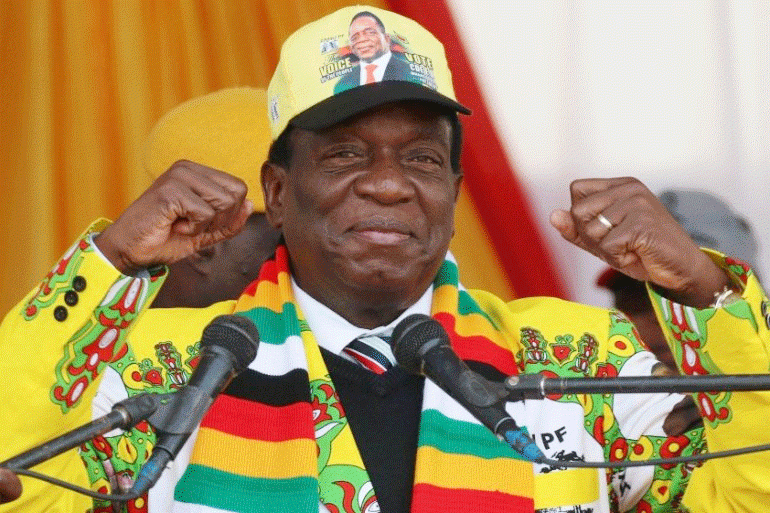
MANY expected Zimbabwe’s 2023 and 2018 elections to catalyse the much-needed political transformation following the 2017 “military-assisted” political transition named Operation Restore Legacy.
Both elections offered hope that Zimbabwe would restore democratic rule and, more importantly, provide peace and political stability after decades of instability that characterised the rule of the late former president Robert Mugabe and Zanu PF.
President Emmerson Mnangagwa’s “throwing open the doors” to international election observers in 2018 was a welcome development, ending decades of non-accreditation of external election observers. Yet, it quickly became apparent that little had changed regarding Zimbabwe’s overall adherence to and respect for democratic principles and human rights.
Mnangagwa, like his predecessor Mugabe, appears willing to go to any lengths to retain political power. As such, after the 2018 elections, his failure to address continued institutional decay inhibited transformation or political reform, and little is now expected following the 2023 elections.
The Southern African Development Community (Sadc) noted in its 2023 preliminary statement of the elections that the Criminal Law and Patriot Act of 2004 are incompatible with the requirements of the Zimbabwean Constitution and the Sadc Principles and Guidelines Governing Democratic Elections. Expressing further criticism, the main opposition party — Citizens Coalition for Change (CCC) — joined election observer missions (EOMs)’ disapproval of the 2023 elections’ legitimacy and called for a re-run or a unity government.
The opposition has pegged its hope on Sadc and the African Union (AU) to facilitate such action. It is worth noting here that historically the international community’s application of sanctions against Zimbabwe has fallen short in terms of coercing political reform.
And there remains a need for renewed international engagement to assist political transformation.
The political and electoral landscape of the 2018 and 2023 elections in Zimbabwe
- Mr President, you missed the opportunity to be the veritable voice of conscience
- ED to commission new-look border post
- Zanu PF ready for congress
- EU slams Zim over delayed reforms
Keep Reading
Zimbabwe’s political landscape challenges peace-building initiatives, particularly election observation, that in the long term should strengthen institutions for sustainable peace. In the run-up to the 2018 elections, Zimbabwe accredited international election observer missions after decades of their absence.
Hopes were high for a clean campaign and an election that truly reflected the people’s desires. The presence of the European Union (EU), Commonwealth Observer Group, Carter Center, National Democratic Institute, and the International Republican Institute offered much hope.
However, efforts to strengthen the country’s electoral process — media reform, fortifying the Zimbabwe Electoral Commission’s (Zec) impartiality, allowing the diaspora vote, addressing unfair voter registration processes and security sector reform — remained unresolved in 2018.
Calls for these reforms have been made since 2013, yet the government administration remains indifferent to addressing them.
Indeed, 15% of the members of the 2018 electoral commission were former or active military personnel, indicating neither independence nor impartiality.
Moreover, the Public Order and Security Act of 2002 undermined the rights to freedom of association and peaceful assembly, while the Access to Information and Protection of Privacy Act along with the Criminal Law (Codification and Reform) Act were used to arrest peaceful protesters and censor critical media. Additionally, political parties (both the Movement for Democratic Change and Zanu PF) engaged in violence and intimidation against each other’s supporters during the primary elections.
Ultimately, Mnangagwa won the disputed 2018 elections after the country’s Constitutional Court rejected opposition leader Nelson Chamisa’s challenge of the result.
In its follow-up report to the 2018 elections, the EU noted that out of the 23 recommendations it had made, only two could be considered partially implemented in 2022, while efforts to address nine others were ongoing, with the uncertainty of whether they would be completed. It was too early to determine whether the other eight of the proposed recommendations would be implemented.
In the August 2023 observation report, the EU observer mission deplored “the extensive and sustained disinformation and defamation campaign waged against the EU EOM and other international observer organisations, the lack of access to key electoral bodies, as well as the unjustified arrests of citizen observers.”
The report also highlighted the Sadc’s lament of the elections’ failure to meet regional and international standards, including key principles of equality, universality, transparency, and accountability.
Following these pronouncements, the CCC queried (mainly through the media) the election’s outcome while Mnangagwa was inaugurated on September 4, 2023.
What is more, security agents arrested 41 workers for poll monitoring groups and seized their computers and vote tabulating equipment, deported others like the Good Governance Africa research group, and denied accreditation to the Carter Center’s 30 short-term observers.
Overall, the Carter Center concluded that the 2023 electoral process “did not adequately respect Zimbabwe’s regional and international commitments for democratic and inclusive elections”.
Prospects for structural transformation and way forward
Currently, distrust of political processes within Zimbabwe is heightened, which will continue to polarise the society, if no urgent action is taken for trust-building or reconciliation.
The pronouncements of election observers, especially the Sadc condemnation of critical aspects of the electoral process, have strengthened the CCC’s position on the illegitimacy of the election outcome.
Although the CCC will not challenge the election in the courts — because of distrust and past ineffectiveness of the judiciary system — the organisation is counting on regional organisations and international partners to pressure the current government to compromise.
This could possibly take the form of a power-sharing deal in the short term.
Failing which, inaction from regional organisations and international partners will further contribute to institutional breakdown and dysfunction in Zimbabwe.
In the long-term, efforts for peacebuilding and structural transformation in Zimbabwe must clearly delineate the separation of powers between the three branches of government — the legislative, executive, and judicial as mandated by the country’s constitutional arrangements.
Regional and international partners should pressure Zimbabwe in this regard.
In particular, they should support efforts to better ensure the judiciary and Zec develop greater independence and resilience against interference by political leaders.
Zimbabwe’s security sector also needs reform. With a good portion of its staff coming from the military, independence of the Zec has bleak prospects.
Furthermore, there is a need for an oversight mechanism that will preside over the independence and impartiality of the Zec.
It is only when the independence of administrative institutions such as the judiciary and electoral management body is certain, and constitutionalism is the cornerstone of political processes, that the conduct of elections can translate into the true desires of people and guarantee the protection of civil liberties while enhancing political participation.









